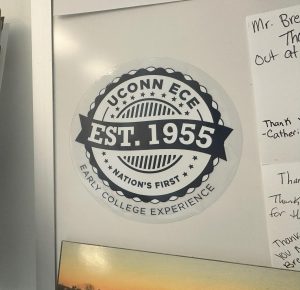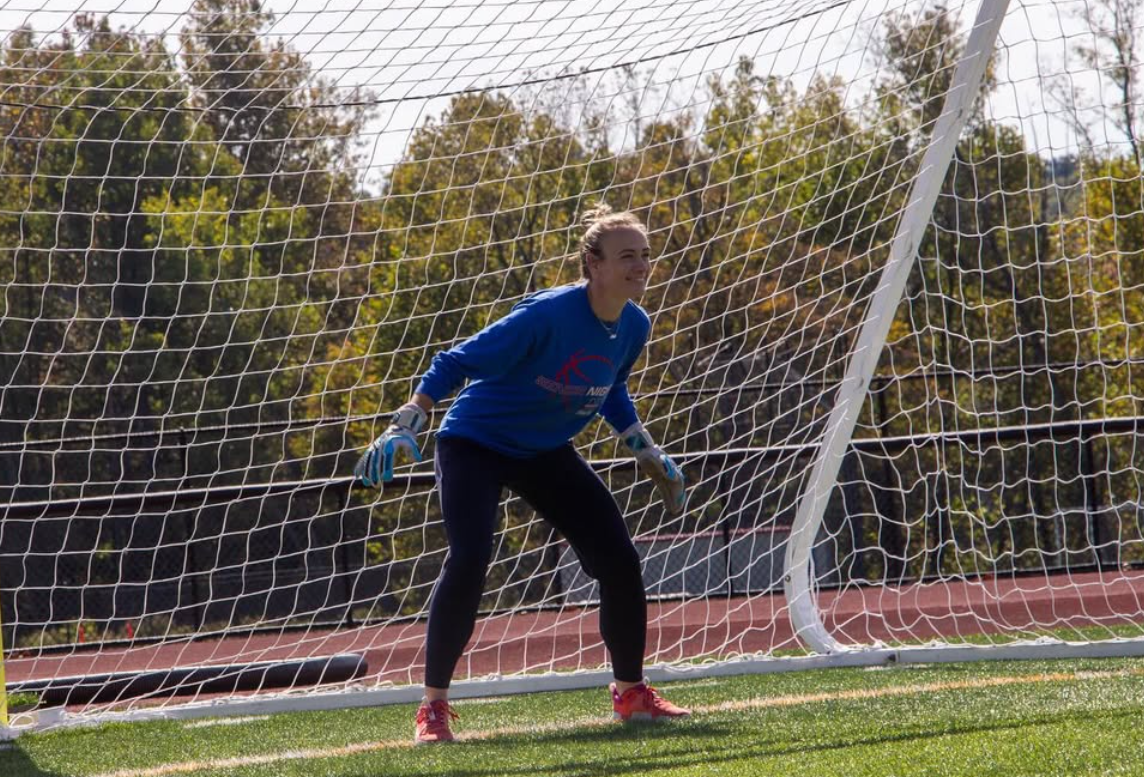WOODBURY – Most students at Nonnewaug cram their schedules with Advanced Placement classes.
Judy Nakhla is one example of one of those students.
“I take seven classes that are AP,” says Nakhla. “I have [AP] Physics, AP Calc, AP Bio, AP Gov, and then I have Calc BC and AP Research.”
The real question is: Should students be filling their schedules with so many AP classes?
“Based on what teachers have told me, they all wish they took more because it just saved a lot of time and money,” says Nakhla. “I think it does train me for the career path that I want because it is going to be very rigorous in the future so I do think they’re worth it.”
Toby Denman, the AP Biology teacher, says AP courses can be valuable but it depends on each student’s academic goals and skills.
“It is a case by case basis,” Denman said. “[It makes sense] if a student has an interest in one particular area and might want to challenge themselves and assess whether or not they are genuinely interested by seeing what it might actually look like at the college level.”
Matthew Greaves, ECE (Early College Experience) and AP Spanish teacher, agrees with Denman.
“I think that students should pursue their personal interests and what may suit them in the future,” Greaves said. “For some students, that may entail taking a number of AP classes, but that may not be the case for everyone.”
“It depends on what you want to go into,” says senior Grace Walkup. “Taking AP Lang and AP Lit, those are kind of universal classes, but if you’re not going into STEM or engineering, you probably don’t want to take AP Chemistry.”
Walkup feels that the type of AP class students should take should depend on what they actually want to do in the future.
But there are other options to get college credit rather than cramming and pulling all-nighters for an entire year, plus needing to pass an exam just for the potential to get college credit, since not all colleges accept all AP test scores.

ECE classes are another way to get college credit. Greaves explains the difference between AP and ECE courses.
“In my experience they are both quite different,” Greaves said. “At least with Spanish, ECE classes allow the instructor to have some freedom and discretion when creating a syllabus. AP is more prescribed, and due to the nature that it is taught all over the country, it requires greater uniformity.”
“ECE classes are a little more expensive,” says Walkup, “but you’re guaranteed credit and paying for a credit in college is way more than $90 so you might as well get it done now.”
ECE classes may provide more accessible benefits academically because credit doesn’t rely upon a single test, while AP classes are less expensive.
“I’ll have completed 10 AP classes,” says Walkup, “so that’s saving me a lot of money in college.”
So are they really worth it?
“I think so, because based on what my teachers have told me, they all wish that they took more because it saves a lot of time and money.” says Nakhla. “ I think that it does train me for the career path that I want because it is going to be very rigorous in the future too.”
But is all that stress really worth it in the long run?
“You can do great things and not take AP classes,” says Kathy Green, Nonnewaug’s College and Career Resource Center counselor. “You can challenge yourself and not take AP classes. There has to be a balance and sometimes students need to check into themselves and find where they want to put in the effort, and it’s OK not to take the AP class if it is going to add more stress than joy.”











